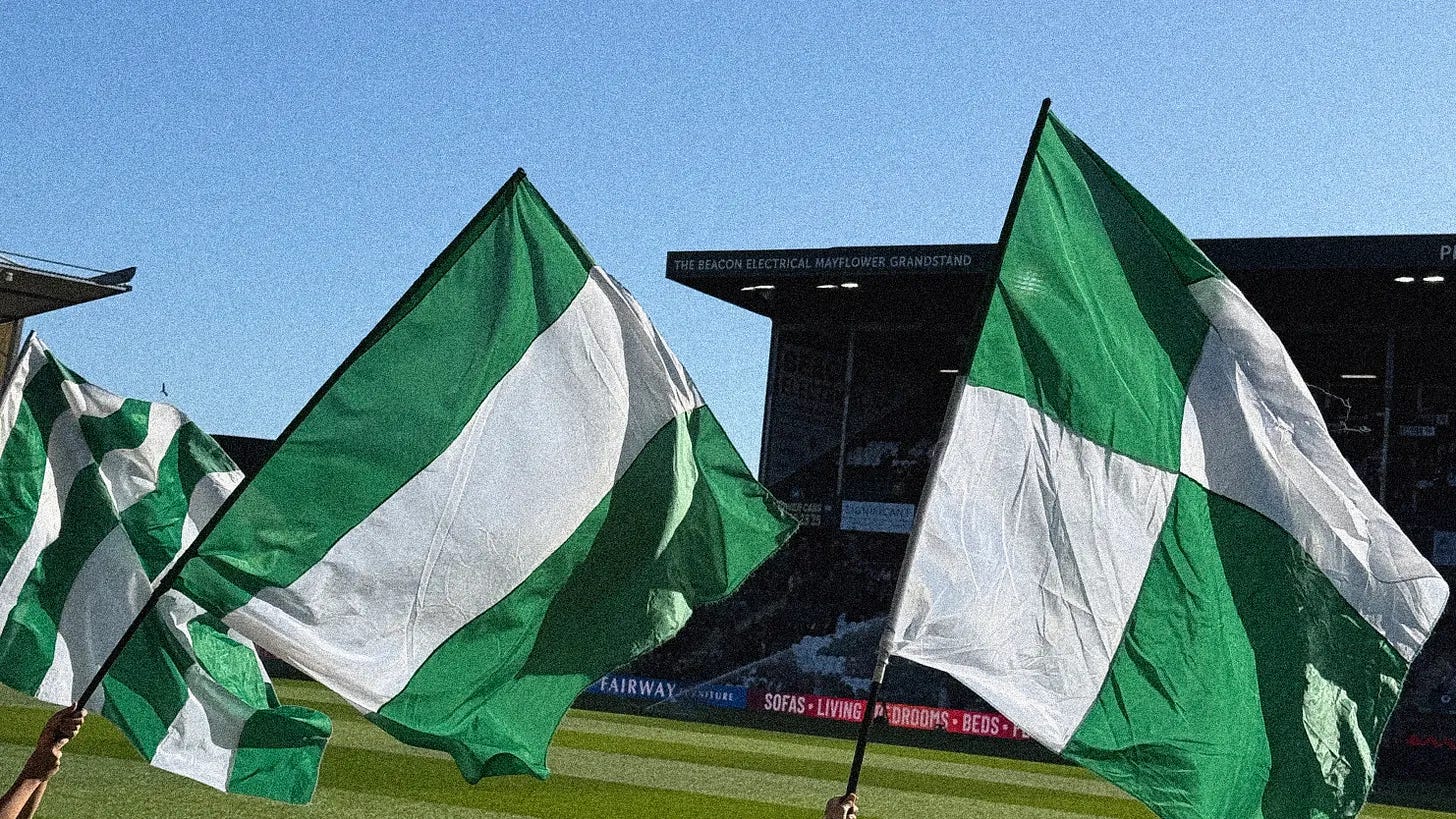Argyle growing pains laid bare – but better times are coming
As a richer club, can we better protect our interests and take fewer risks – but should we?
Hello from me – this was written a week or so ago, but I’ve been too busy watching Graham Carey play TST to publish it. Can we enter again next year?
Many, many years ago, when struggling to get a job after university, I was finally offered a job at a small local paper in Devon. After verbally accepting the job, I was unexpectedly offered another job I’d interviewed for. It was better paid, and would ultimately shape my whole career. There was only one choice. I spoke to the editor and told him I’d changed my mind, but he’d already posted out the rejection letters to the other candidates and was rightly furious.
In many ways, I feel hypocritical criticising Miron Muslic’s shot at a far bigger opportunity, despite leaving our club in the lurch.
But the sour taste left in the mouth is perhaps because Muslic himself has been proven to be something of a hypocrite. A salesman as much as a football manager, he spoke at length about commitment and integrity – and went on to show little of it himself.
But I’m not here to go on about Muslic. Instead, it’s to talk about something far more existential… Argyle’s place in the football world. And how it’s changed.
The dismissiveness of both Muslic and Schalke (who bestowed on Argyle the great honour of a friendly after low-balling our contracted compensation) couldn’t provide a more telling story about our place.
Any manager who shows the aptitude for success with our small budgets and constraints will be quickly targeted.
An existential question
And it presents an existential question many are asking:
Should we simply aim lower in favour of stability, or roll the dice? By taking risks on up-and-coming managers, are we simply creating a scenario for either success and immediate poaching, or failure?
Do we simply need a manager capable of guiding a top-budget team to a sniff of promotion, without either walking out or soiling his trousers?
It’s actually a rather depressing thought. But in my eyes, there are reasons to be cheerful.
Schumacher and Muslic have netted us around £2m in compensation – vital funds in League One, where we return transformed in just two years.
We return to League One bruised, battered, and richer. I’d like to think we’re a little more streetwise, especially after Muslic’s exit. We are many orders of magnitude better off than when we left.
The five-year plan (to be a play-off competitive Championship team) is off to an appalling start, but it is a five-year plan, not a 1.5-year one. The best chance we have is to carry promotion momentum into the Championship, and when we get back there (whenever that is), we’ll have a better idea of what to expect.
And as our resources grow, Argyle can be more resilient. With more money, we can start to negotiate player and staff contracts that leave us less exposed to the kind of managerial piracy waged by Schalke and Muslic. We can start to be the bully.
We’ve already seen this in action. Prising Caleb Watts from Exeter is a fine example. Imagine coming to Argyle because league rivals can’t match our offers. We have twice the budget size from when we were in League One just three seasons ago, and now have a top budget for the level.
So would I like to see us go safe this time around? While my head says yes, my heart secretly hopes for another gegenpressing merchant plucked out of the 5. Bundesliga with a point to prove.
Any manager who achieves success will be a target. The alternative makes little sense.
Here we go again.




The key is for the club to insulate itself against a manager leaving by having a strong support team that stays in place regardless of who the head coach/manager is. This worked well when Lowe left and in theory should have worked with the Foster appointment.
There are problems with this approach however. Firstly it might limit the type of head coach you can attract if they don’t have control over areas of recruitment and playing style. Secondly if things go wrong it’s hard for the director of football to survive more than one poor managerial appointment, meaning you end up tearing it up and starting from scratch again anyway.